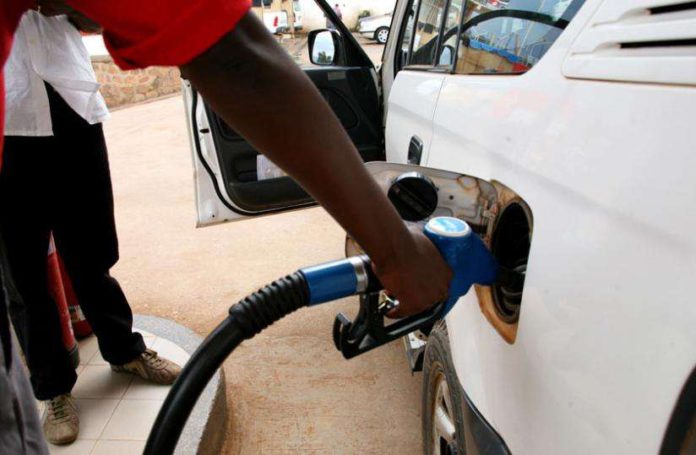
Ghana is about the most expensive country to live in in Africa. This is because, while inflation is zooming through the roofs, salaries are at the lowest ebbs and petrol sells at the ex-pump at a cut-throat price.
What this means is that – in Ghana – most workers get less than peanuts in the name of salaries, spend almost all on food and transport the cost of which are very high; and, the situation keeps worsening because of galloping inflation.
Our Adom Brands Research Team came to the conclusion after unearthing startling figures of inflation, minimum wage, and fuel prices in Ghana as they contrast sharply with a section of African economies.
Just this past month, May, 2022, whereas Ghana’s inflation was as high as 27.6 percent (racing towards 30 percent), inflation in the Republic of South Africa was as low as – 5.9 percent. If you consider South Africa distant or more advanced, the research finding on neighbouring La Cote d’Ivoire could perplex you even the more. The Ivory Coast’s inflation is as low as 4 percent!
What comes close to consolation to Ghana in terms of inflation is oil-rich Angola which posted an inflation figure of 24.42 percent in May.
But, even at 24 percent, the Angolan inflation is less bad than Ghana’s. Even Africa’s biggest economy – Nigeria – whose leaders are historically noted for economic mismanagement has a wieldier figure than Ghana’s: 17.4 percent.
It is further worthy of note that, as all nations wail against the scourge of coronavirus, its attendant global economic meltdown and the Russian-Ukrainian war which is spiralling oil prices; there are some African economies still managing inflation at single digits.
As already mentioned in this research finding story, South Africa posted 5.9 percent and Ivory Coast – 4 percent in May. But there are more: Kenya – 7.1; Togo – 7.5; and, Botswana – 9.6 percent.
And, there are those economies with double digit inflation figures that are nowhere near 20 percent: The Gambia – 11.6; Rwanda – 12.6; and Africa’s third biggest economy, Egypt – 13.5 percent.
In terms of purchasing power, the financial ability to buy products and services, which is dependent on wages and salaries; Ghana gives her employees some of the lowest salaries.
Currently, minimum wage in Ghana is 13.53 Cedis – which translates into just one dollar, 69 cents ($1.69). Cross the border to neighbouring Togo and the minimum wage is $2.32. If you turned westwards rather to Cote d’Ivoire, you would be luckier – $3.99 is the minimum wage there.
In South Africa, minimum wage is calculated per hour; not per day. South Africa’s minimum wage per hour is $1.44 – $11.44, if you work eight hours a day, for that matter. Botswana is in the category that pays per hour – 60 cents per hour – which means $4.8 for a full day’s work in eight hours.
Nigeria’s minimum wage for the full month is 30,000 Naira or $72.27; in other words, in the about-24 working days, the daily minimum wage is $3.0. South Africa’s daily minimum wage is $11.52. Egypt’s is around $174 per month – or, $7.25 per day; Kenya: $129.07 per month – or, $5.37. Angola, which has a considerably high inflation figure of 24.42 percent, kind of compensates for that in her minimum wage. Angola’s minimum monthly salary is $74.26 – or, $3.09 per day.
The only economy that Ghana beats in terms of minimum wage is the tiny Gambia. In Banjul and neighbouring towns, minimum wage is 50 dalasi or $1.25 – 44 cents less than Ghana’s $1.69.
In Ghana where inflation is at 27.6 percent, the smallest worker is paid $1.69 cents to travel on commercial vehicles and buy food conveyed on trucks – the drivers of which buy fuel at 11.00 Cedis per litre. That is $1.38 per the litre.
Contrast that with Nigeria where inflation is at 17.4 percent, minimum wage – $3.0 and a litre of fuel sells at only 42 cents. Ivory Coast’s petrol is almost as expensive as Ghana’s – $1.206 per litre. But, as pointed out already, Ivory Coast’s inflation is at just 4 percent; her minimum wage, is $3.99 (almost 4 dollars). Egypt: inflation – 13.5percent; minimum wage – $7.25; petrol – 52 cents. Kenya: inflation – 7.1percent; minimum wage – $5.37; petrol – $1.301 per litre.
Botswana: inflation – 9.6percent; minimum wage – $4.8; petrol – $1.166 per litre. Rwanda: inflation – 12.6percent; minimum wage – $2.50; petrol price – $1.321 per litre. Togo: inflation – 7.5%; minimum wage – $2.32; petrol price – $1.025 per litre. Angola: inflation – 24.42percent; minimum wage – $3.09; petrol price – 0.374 cents per litre. RSA: inflation – 5.9%; minimum wage – $11.52; petrol price $1.545.
Again, Ghana has none other to compare with favourably than tiny Gambia. The Gambia: Inflation – 11.6 percent; minimum wage – $1.25; petrol price – $1.29 per litre.
Even here, it is not quite; for, whereas Ghana has an inflation figure of 27.6percent, Gambia’s is only 11.6 percent!
